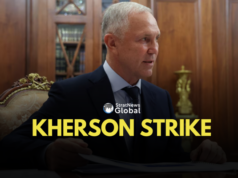What does the election of Anura Kumara Dissanayake of the Janatha Vimukthi Peramuna, a Marxist–Leninist communist party, as the President of Sri Lanka in a run off with 42 per cent of the vote on Sunday mean for Sri Lanka’s foreign policy, particularly India-Sri Lanka relations? AKD, as he is known, is also the leader of the socialist political alliance Jathika Jana Balawegaya (JJB), or National People’s Power (NPP), which he established in 2019. The JJB alliance, which won 3.8 per cent of the vote in the last Presidential elections in 2020.
And does the fact that he leads a socialist alliance mean the new government will be pro-China? Those were some of the questions we asked Nilanthan Niruthan. the Executive Director of the Centre for Law And Security Studies in Colombo and a reputed geopolitical analyst.
“Our foreign policy is often the result of whoever’s in power, rather than on fixed strategic issues. So it’s too soon for us to tell which way AKD would go in terms of alignment,” says Niruthan, who frequently writes for international publications on diverse issues like global security, international law and geopolitical trends. He is also a lecturer at the National Defense College, the highest institution of military education in Sri Lanka.
“The official position right now is non-alignment, much like the standard Sri Lankan foreign policy over the last several decades has been. But there are questions over whether that can even be practical in today’s day and age. Can a country like Sri Lanka actually thrive by being nonaligned in a multilateral world?
As for being pro-china, this is not a mandate to turn Sri Lanka into a Marxist country as per the JVP vision or anything like that,” he says. “This was simply a mandate to deviate from and rectify many of the mistakes that were made in the past, and it was an expression of great anger and dissatisfaction for what’s happened in the past, and also a call for hope, a call for a new kind of politics. In a way, it’s interesting because you could almost see parallels of the Trump election and, even the BJP’s rise to national power in India, where it’s almost seen as a symbol, as a fight against dynastic politics, as a draining of the swamp, as a beacon, electing someone who can hold the people accountable for the plunder of the past.”
If anything, AKD has been extremely critical of the way in which China has dealt with Sri Lanka, whether it’s the way in which national strategic assets like Hambantota port, or the way in which we borrowed large sums, unsustainable sums of money to the point where we found ourselves in a debt trap,” he adds. “He, (AKD) has been highly critical of all of that. So under AKD presidency, maybe he will have a protectionist foreign policy where he does not want foreign powers involved here too much.
Did being known as pro-China or Pro India make a difference in who won this election?
No, says Niruthan. “These elections were fought predominantly on different issues. Number one was the economy, but more importantly, it was an expression of a lot of both anger and hope that we saw materialize two years ago. So in a sense, that anger and that hope for a better future, it’s, it’s a synergy of both hope and anger that is still present.
“So there is a pro India feeling in the sense that there is an acknowledgment that India was the major act, that intervened to save Sri Lanka from a big financial disaster. But many of these decisions are not made based on that. Some people just hate China for the sake of it. Some people just hate India for the sake of it.
But despite the goodwill, “if you look at the basics, both the digital connectivity and the business connectivity and any kind of economic connectivity between the two countries in general, considering how close we are, it’s absolutely shocking how badly connected India and Sri Lanka are. And I think this is also because of foreign policy being held hostage to individual regimes,” he says.
To get a deeper perspective of the Indo-Sri Lankan dynamics from a Sri Lankan expert, and what New Delhi can do to build on the goodwill it has generated so far, watch the full interview.
In a career spanning three decades and counting, Ramananda (Ram to his friends) has been the foreign editor of The Telegraph, Outlook Magazine and the New Indian Express. He helped set up rediff.com’s editorial operations in San Jose and New York, helmed sify.com, and was the founder editor of India.com.
His work has featured in national and international publications like the Al Jazeera Centre for Studies, Global Times and Ashahi Shimbun. But his one constant over all these years, he says, has been the attempt to understand rising India’s place in the world.
He can rustle up a mean salad, his oil-less pepper chicken is to die for, and all it takes is some beer and rhythm and blues to rock his soul.
Talk to him about foreign and strategic affairs, media, South Asia, China, and of course India.




